Climate change is an urgent fight — a battle we can no longer ignore as the incessant rise in temperatures, extreme weather disruptions, and ecological imbalances becoming all too apparent. The silver lining amidst these somber clouds, however, lies in the unwavering commitment of individuals and organizations determined to counteract this crisis.
Every gesture counts. From individual actions to community initiatives and institutional policies, our collective efforts can spawn significant, enduring enhancements to our environment. In this vein, we want to spotlight 15 trusted climate projects that stand as pillars of hope in this environmental struggle. Embodying the spirit of collaboration, innovation, and tenacity, these projects put forth practical solutions and strategies to redress the urgent ecological concerns of our era. As we rally around these initiatives, hand in hand, we can champion the shift toward a future that’s more sustainable and resilient.

As 2024 unfolds, we stand at a critical climatic crossroads. Recent years have vividly highlighted the escalating threats of climate change, touching every corner of our lives. This pivotal year demands not just reflection but decisive global action. Here, we dive into the urgent challenges we face and the paramount importance of climate action now.
The Climatic Repercussions We’re Confronting: The ongoing climate crisis continues to unleash an array of challenges. Extreme weather events, including hurricanes, droughts, heatwaves, and heavy rainfalls, have become alarmingly commonplace. Such events are causing widespread devastation, from massive property damage to the tragic loss of lives and significant upheavals in fragile ecosystems. Moreover, the melting polar ice caps, a direct factor in rising sea levels, now threaten coastal cities and islands, causing erosion, rampant flooding, and saltwater incursions.
Changes in Oceanic and Biodiversity: The repercussions of heightened atmospheric CO2 levels manifest prominently in our oceans. An increase in carbonic acid has led to ocean acidification, jeopardizing marine organisms, especially those reliant on calcium carbonate, such as corals and mollusks. At the same time, shifting weather patterns and temperatures have prompted a vast number of species to migrate, resulting in unpredictable ecosystem transitions and a notable decline in biodiversity.
Socio-Economic Impacts We’re Witnessing: The socio-economic facets of the climate crisis are deeply felt. Vital sectors like agriculture, fishing, and tourism are grappling with volatility stemming from erratic environmental shifts, leading to potential price surges, food scarcities, and broader economic challenges. Furthermore, heightened climatic events and evolving environments, notably desertification and the rising sea levels, are displacing whole communities. This rise in climate refugees could intensify conflicts over increasingly scarce resources.
Current Health Challenges: The evolving climate doesn’t spare human health. We’ve seen a surge in heat-related ailments and vector-borne diseases due to rising temperatures. Especially in urban regions, deteriorating air quality is causing an increase in respiratory issues among the populace.
Reflecting on 2024’s Climate Action Milestones: 2024 is more than just a mark on our calendars; it’s central to the climate action narrative. It’s been almost a decade since the Paris Agreement was adopted, with its audacious goal to limit global warming. This year, numerous countries are showcasing their updated Nationally Determined Contributions (NDCs) to further curtail emissions. It’s a period for global reflection, where we assess our strides, fine-tune our strategies, and fortify our collective commitment.
Technological and Financial Progress: Over the past years, there’s been palpable excitement around technological breakthroughs in green sectors. In 2024, we see that advancements in renewable energy, battery storage, and carbon capture are not just on the horizon but are accessible, affordable, and scalable. On the financial front, developed nations had committed substantial monetary support for climate initiatives in developing regions. Now is the time to gauge the effectiveness and impact of these financial commitments.
In 2024, we find ourselves under a glaring beacon, pushing the world to come together, evaluate, and intensify our actions against the formidable challenges of climate change. As we witness the mounting impacts daily, the clarion call for action resonates louder and with greater urgency than ever before.

Cool Earth is a UK-based non-profit organization focused on halting rainforest deforestation. It was founded in 2007. Holding the Platinum Seal of Transparency from GuideStar, this esteemed organization emphasizes the intricate relationship between people, rainforests, and climate.
Focused on addressing the core issues behind deforestation, the organization allocates funds to indigenous rainforest communities. These resources empower local groups to launch sustainability education initiatives, leading to the establishment of solar energy farms, bee-keeping ventures, and innovative waste solutions. Through the Rainforest Firefighters Campaign, funds are raised to research the origins of forest fires, paving the way for future forest fire management strategies.
In collaboration with their partners, the organization has successfully safeguarded approximately 105 million trees, translating to a storage of 48 million tonnes of carbon. Investments have also been channeled into 40 community-led sustainability projects spanning regions from the Amazon to the Congo Basin.
Founded in 1996 by Armond Cohen, the Clean Air Task Force (CATF) initially aimed to influence federal policies to encourage older coal plants in the U.S. to enhance their emissions standards. Evolving over the years, this organization now plays a pivotal role on the global stage, striving to mitigate the dire consequences of climate change.
Boasting the Silver Seal of Transparency from GuideStar and a commendable 4-star rating from Charity Navigator, CATF delves deep into science-backed solutions to tackle climate challenges. They ardently advocate for policy structures that bolster the widespread adoption of established carbon capture technologies. Additionally, they’re at the forefront of championing zero-carbon fuels like hydrogen and ammonia, advocating for their integration into transport and heating sectors across continents including America, Europe, Asia, and regions of the Middle East and North Africa.
The efforts of CATF have significantly contributed to coal plants enhancing their emission standards, which translates to a preservation of approximately 13,000 lives annually. In 2018, they unveiled an interactive U.S. map spotlighting carbon capture project announcements, providing a valuable resource for industry experts and researchers to monitor the expansion of this vital clean energy tool. Moreover, in 2020, they played an instrumental role in securing substantial federal support for innovative climate change technologies.
Established in 1969 by a collective of scientists and students from the Massachusetts Institute of Technology, the Union of Concerned Scientists emerged from deep concerns over the U.S. government’s handling of the environmental crisis, exemplified by the heavily polluted Cuyahoga River during the Vietnam War era. Today, this organization stands at the forefront of championing a world enhanced by scientific progress, emphasizing safety and health.
With both the Platinum Seal of Transparency from GuideStar and a stellar 4-star rating from Charity Navigator, this union has positioned itself as a vanguard in addressing paramount environmental challenges. By synergizing the efforts of scientists, advocates, educators, and businesses, they have been relentless in their endeavors against climate change, fostering sustainable energy adoption, and advocating against the proliferation of nuclear weapons. Over the past three decades, a key goal has been to ensure major fossil fuel entities are held accountable while advocating for the global target of achieving net-zero carbon emissions by 2050.
From its early days, the Union’s commitment to a greener future has borne significant results. A standout achievement in 2016 was their advocacy leading to enhanced fuel efficiency standards for large trucks, mandating a 37% reduction in fuel consumption over a decade. This pivotal move is anticipated to curtail oil usage by 2 billion barrels and mitigate 1.1 billion tonnes of global warming emissions throughout the lifecycle of these vehicles. Moreover, in 2019, they played a pivotal role in ushering in legislation in California, mandating that the state sources 100% of its electricity from clean, renewable channels by 2045.
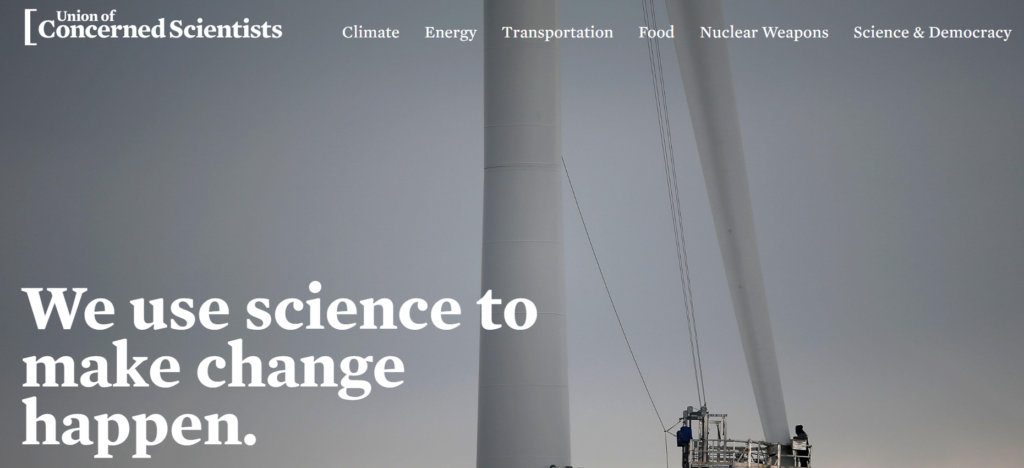
Established in 2017 by Noah Deich and Giana Amador, Carbon180 emerged with the vision of pioneering carbon-absorption technologies. Now, from its base in Washington D.C., it stands as a foremost voice in climate policy, and notably, the sole non-profit exclusively centered on carbon removal.
Recognized with the Silver Seal of Transparency from GuideStar, Carbon180’s evaluation by Charity Navigator remains pending. At its core, the organization collaborates with experts from scientific, business, and policy realms, endeavoring to realize a world where carbon removal exceeds emissions. Their Carbon Economy Consortium, an assemblage of global experts, fosters knowledge exchange and strategizes on innovative carbon elimination techniques. Furthermore, their Leading with Soil initiative underscores their commitment to enhancing farming practices that sequester carbon, offering a tangible solution against climate change.
From its beginnings, Carbon180’s dedication to retracting excess atmospheric carbon has not wavered. Their consistent advocacy was instrumental in securing $70 million in 2019 for carbon removal research and development from federal sources. The following year, their influence paved the way for the endorsement and $60 million funding of the inaugural research program centered on carbon removal.
In 1971, a determined group embarked on a journey to Amchitka Island, Alaska, with the mission to halt a US nuclear weapons test. This marked the birth of Greenpeace, which has since evolved into a global force championing the preservation of our natural environment.
With the Silver Seal of Transparency from GuideStar to its name, Greenpeace remains transparent in its financial operations, allocating 37.16% of its income to campaigning, 19.22% to international projects, and 15.19% to fundraising efforts. Operating in over 40 countries, Greenpeace tirelessly investigates and brings to light the chief culprits of environmental degradation. Through peaceful means such as advocacy, lobbying, endorsing renewable energy, and community interaction, they work to enact change. Among their worldwide initiatives, the Protect the Arctic campaign stands out, advocating for a robust Global Ocean Treaty to shield the Arctic from the ravages of climate change.
Greenpeace’s efforts, coupled with those of kindred organizations, culminated in the enforcement of the OSPAR Convention in 1998. This landmark agreement prohibits the dumping of harmful waste, discarded oil platforms, and similar pollutants into the North-East Atlantic. Further, in 2020, the organization’s activists played a pivotal role in halting the expansion of Sweden’s largest oil refinery, averting the release of an additional one million tonnes of CO2 annually.
In 1971, Phil Berry, Fred Fisher, and Don Harris took a stand to ensure environmental concerns were represented in court, leading to the establishment of Earth Justice. Now, the organization stands as America’s foremost non-profit devoted to environmental legal advocacy, with a deep commitment to preserving wildlife and addressing climate change.
Boasting the Gold Seal of Transparency from GuideStar and a commendable 4-star rating from Charity Navigator, Earth Justice employs over 200 dedicated lawyers. They represent a multitude of environmental causes without charge. In Alaska, they are at the forefront of protecting the expansive Tongass rainforest against harmful logging and mining. Furthermore, in major cities like Chicago and New York, their legal teams champion a transition from fossil fuels to sustainable energy solutions via their Coal Program.
Throughout its history, Earth Justice has played a pivotal role in shaping America’s environmental policies. In a notable 2020 victory, they defended the last of the 50 million acres of roadless national forests. That same year, their efforts were instrumental in a landmark decision by the Governing Board of Southern California’s South Coast Air Quality Management District. This new regulation mandated pollution control installations at all oil refineries, a move set to enhance air quality for countless residents and prevent premature deaths each year.
In 1987, driven by a vision for a sustainable planet, American activist Daniel Katz established the Rainforest Alliance. Today, this international organization stands at the forefront of promoting responsible business practices aimed at creating a sustainable future. Financial reports highlight that they channel 79% of their funds directly into program services, with a remarkable 100% Encompass rating from Charity Navigator.
The Rainforest Alliance partners with agriculturalists, forest communities, and businesses to enhance land use and introduce farmers to climate-adaptive agricultural techniques. Their esteemed Certification Program offers consumers a trustworthy seal on products, signifying adherence to sustainable practices.
The Rainforest Alliance has proudly certified over 2.3 million global farmers and has safeguarded an impressive 3.5 million hectares of vital land through its conservation initiatives. With a network spanning more than 5,000 companies, their certified products grace the shelves in over 100 countries.
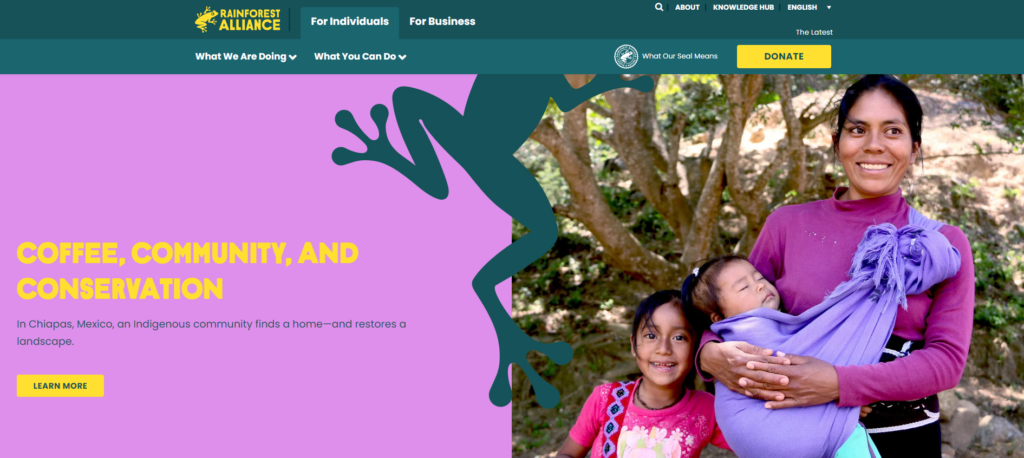
Founded in 1966 by the visionary economist and philosopher E.F. ‘Fritz’ Schumacher, Practical Action was born from the belief that introducing large-scale modern technologies to impoverished nations was not the answer. Instead, Schumacher emphasized the need for appropriate and sustainable solutions tailored to these communities. Today, Practical Action partners with disadvantaged communities globally, offering innovative solutions to combat climate change and alleviate poverty.
Financial insights reveal that 91% of the organization’s resources are funneled directly into charitable endeavors, while the remaining 9% supports fundraising activities. Committed to crafting sustainable, community-driven answers, Practical Action engages in transformative projects in areas such as food security, water and waste management, climate resilience, and clean energy solutions. In Sudan, for instance, they combat the ravages of drought by enabling communities to rejuvenate grasslands with seedlings and leverage solar pumps to harness rainwater for agricultural use.
Throughout its journey, Practical Action has consistently empowered marginalized communities to establish sustainable livelihoods. Between 2020 and 2021, the organization allocated $36.4 million to 96 impactful projects across a dozen countries, benefiting 2 million individuals directly. This investment included $8.9 million directed towards renewable energy initiatives and $11.6 million towards promoting sustainable agriculture practices.
In 1982, esteemed environmentalist David Brower established Earth Island, aiming to combat pressing environmental concerns that jeopardized our planet’s diverse ecosystems. Today, this organization stands as a prominent environmental advocacy group in the United States.
Boasting the Gold Seal of Transparency from GuideStar and a commendable 4-star rating from Charity Navigator, Earth Island dedicates itself to fostering budding environmental initiatives. Through their Project Support Program, they offer both administrative and promotional assistance to nascent projects addressing critical environmental issues, ranging from climate change to wildlife conservation. Their Indigenized Energy Initiative collaborates with American Indian communities, promoting sustainable solar power solutions to reduce energy disparities and counteract climate change. Moreover, the New Leaders Initiative stands as a testament to their commitment to nurturing the next generation of environmental champions.
Over the years, Earth Island has championed over 200 environmental projects and recognized 135 emerging young environmentalists via their New Leaders Initiative. A notable success from 2019 was their backing of the WISE Woman’s Clean Cookstoves Project, leading to 13,000 Nigerians benefiting from cleaner air and more efficient fuel consumption.

At the heart of contemporary society, heavy industry serves as the critical foundation, ensuring our infrastructure remains robust – from bridges and roads to renewable energy endeavors such as wind turbines and solar projects. This industry also paves the way for the next generation of vehicles and tools crucial for a sustainable future. However, Industrious Labs recognizes that with such advancements comes a profound responsibility.
While the industry has been a catalyst for progress, it has also left a trail of challenges – environmental concerns, overlooking marginalized communities, rampant wastage, and often placing profit before people. The prevailing “take-make-waste” approach has significant repercussions. Recognizing this, Industrious Labs endeavors to redefine the industrial paradigm. In collaboration with their partners, they envision an industry that not only generates quality employment opportunities but also acts as a beacon for environmentally-conscious practices.
They champion the cause of waste reduction, reuse, repair, remanufacturing, and recycling. Their goal is to transform the industry’s production methods and reshape the lifecycle of products. Through Industrious Labs’ lens, they imagine an America revered for its sustainable industry, where top-tier and eco-friendly materials are crafted by the American workforce. Their aspiration is for an industry that coexists harmoniously with communities, acts as the cornerstone of a thriving regenerative economy, and sets a global standard in climate change mitigation.
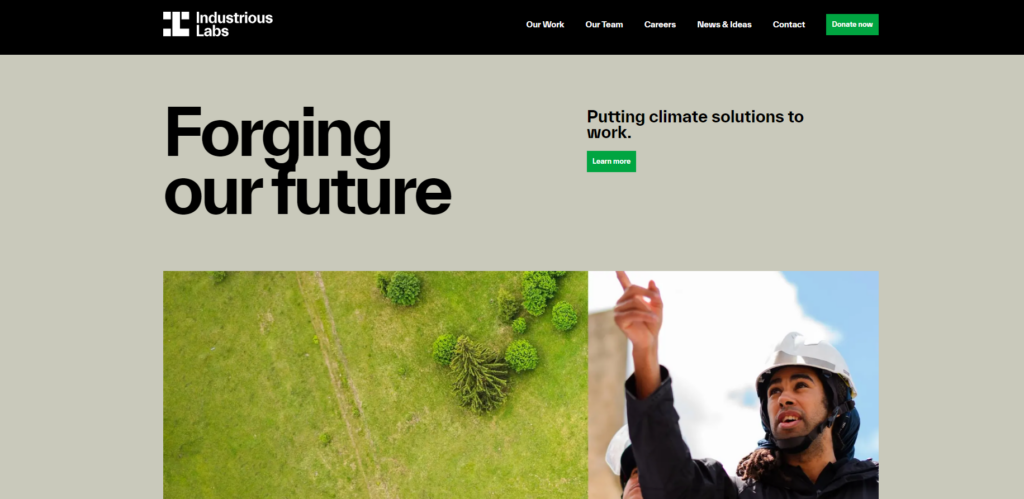
Evergreen is at the vanguard of America’s climate initiatives, driving aggressive climate action to the nation’s forefront. Since its establishment in 2020, the organization has profoundly influenced the national climate policy, with the Biden administration incorporating significant elements of the Evergreen Action Plan. Their influence also played a crucial role in the passage of the Inflation Reduction Act (IRA).
Merging robust policy frameworks with dynamic communications and advocacy, Evergreen aspires for a comprehensive government response to the climate crisis. Their strategies prioritize robust investments, elevated benchmarks, and a justice-focused approach to foster a resilient clean energy ecosystem. Originating from a collective of “Inslee for America” campaigners, Evergreen’s mission today is encapsulated in the Evergreen Action Plan, a blueprint for national mobilization towards a sustainable and equitable future.
Established in 2021, Terra Praxis is a forward-thinking nonprofit organization dedicated to safeguarding the energy transition. Built upon the extensive experience and trusted relationships fostered by co-founders Kirsty Gogan and Eric Ingersoll, the organization is a beacon in the realm of energy innovation.
Recognizing the urgent need for a significant overhaul of the global energy system to address both climate change and energy poverty, Terra Praxis identified a growing disparity between decarbonization goals and the actual deployment of clean energy solutions. They warn of the looming possibility that the world might not reach the coveted Net Zero emissions mark by 2050, risking severe climate repercussions unless proactive measures are rapidly and expansively adopted.
To address these concerns, Terra Praxis assesses the primary hindrances to a swift and large-scale energy transition, such as land availability and public opinion. They then craft and innovate scalable solutions to counter these challenges. In collaboration with diverse stakeholders—ranging from industry leaders to academic institutions—they work diligently to expand and diversify the strategies for profound decarbonization. This includes ensuring that applications for emissions-free heat sources are aptly reflected in global climate and energy models, policy frameworks, and market solutions.
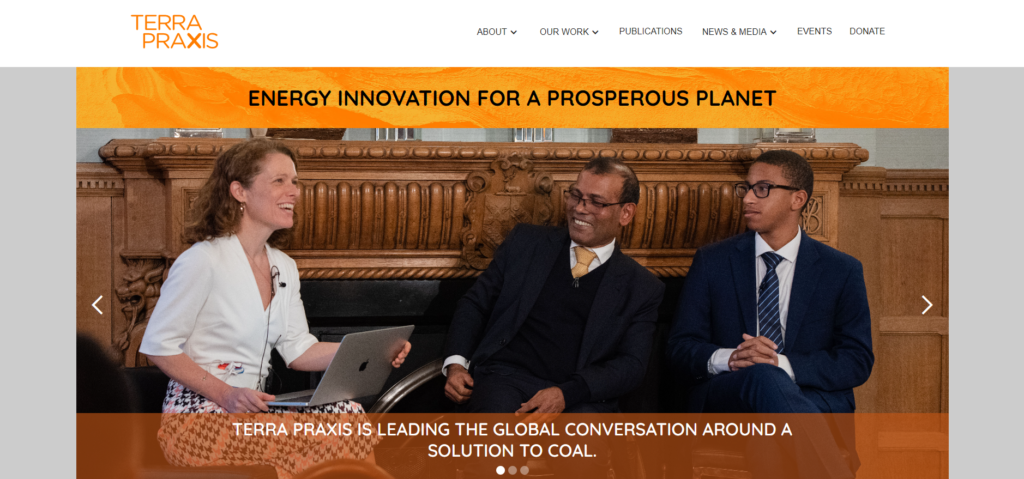
Future Cleantech Architects stands as a pioneering climate innovation think tank, dedicated to bridging the innovation voids essential for achieving net-zero emissions by 2050. They channel their efforts into accelerating sustainable solutions in key industries like cement, aviation, and shipping, where green alternatives are nascent.
They actively collaborate with policymakers, emphasizing the urgency and prioritization of R&D activities. Further, they spearhead research consortia, targeting cutting-edge technologies for industries that have long been sidelined.
With a seasoned team of cleantech experts, including economists, engineers, and designers, Future Cleantech Architects aims to revolutionize cleantech R&D processes. Their holistic approach ranges from foundational research to devising strategies that aid in decarbonizing high-emission industries.
Founded by a dedicated team passionate about integrating nuclear energy into the climate change conversation, Good Energy Collective strives to reframe nuclear power within a progressive context. Recognizing the historical challenges and stigmas surrounding nuclear energy, this policy research organization seeks not only technological innovations but a ground-up transformation of the industry. With an emphasis on justice and sustainability, Good Energy Collective envisions nuclear power as a core pillar in the broader climate strategy while simultaneously addressing societal inequities.
Financially backed by a devoted community of individual supporters and philanthropic bodies, the majority of Good Energy’s funding supports its mission to craft intelligent, equitable policies that facilitate the rapid and just deployment of advanced nuclear solutions. Operating under a “worker self-directed” nonprofit model, the organization ensures that its members have a tangible impact, amplifying their vision of aligning nuclear energy with global environmental and justice goals. Their commitment to ethical behavior and diversity, equity, and inclusion (DEI) further underscores their progressive approach.
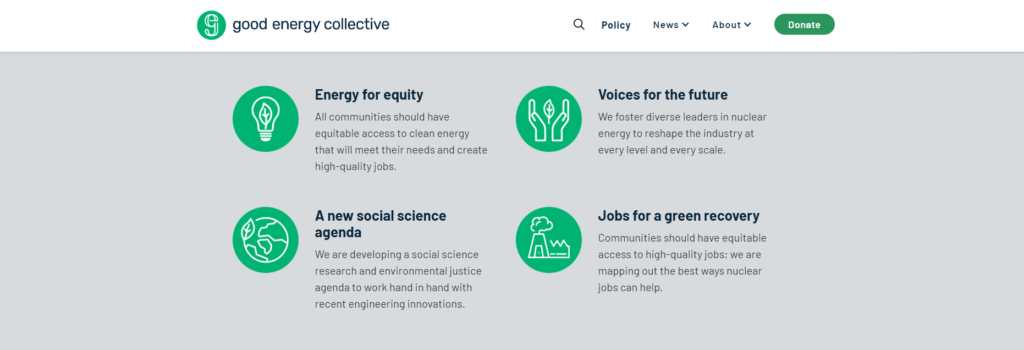
Founded with a vision to transform the global food system, The Good Food Institute (GFI) stands as a beacon for sustainability, health, and humane practices. Rooted in the belief that the current meat production paradigm is neither efficient nor sustainable, GFI champions the advancement of alternative proteins. Collaborating with scientists, businesses, and policymakers, they work diligently to ensure plant-based and cultivated meat options are not only palatable but also affordable and widespread.
Driven by philanthropic endeavors, GFI dedicates its resources to fostering innovations that can replace the unsustainable and inefficient conventional meat industry, which contributes to climate change, environmental degradation, and antibiotic-resistant diseases. With a data-driven approach, they emphasize the feasibility of producing meat from plants or cultivating it from cells. The Institute is unwavering in its belief that the key to a sustainable future lies in reshaping the industry, making alternative proteins the norm rather than the exception.
GFI has consistently been at the forefront of the alternative protein revolution. As an international network with footprints in Asia Pacific, Brazil, Europe, India, and Israel, GFI aims to address global challenges with global solutions. By integrating good data, science, and strategy, they have managed to make significant strides in altering perceptions and practices surrounding meat consumption, echoing their vision of a world where alternative proteins are the standard choice.
The clock is ticking, and every effort counts in the race against climate change. As we step into 2024, supporting trusted climate change projects has never been more critical. It’s not just about governments, businesses, or nonprofits doing their part. It’s about you. By supporting these projects, you become an active participant in the global effort to safeguard the future of our planet. Let’s look at why your support matters:
🪙 Accelerating Climate Action: Every dollar donated or minute spent volunteering accelerates the work of these organizations. They can do more and do it sooner.
✊ Ensuring Sustainability: Sustainable practices can only become widespread when they are supported. Your support helps these projects become mainstream, inspiring businesses and individuals to adopt eco-friendly habits.
🗣️ Spreading Awareness: Supporting these projects also means helping to raise awareness. The more people know about what’s at stake, the more likely they are to act.
The fight against climate change is a collective responsibility. The actions we take today directly shape the world we leave behind for future generations. By highlighting these 15 trusted initiatives, we hope to motivate and encourage you to engage actively, breathe life into these projects, and drive the momentum necessary to address the global climate crisis.
🌎 The world needs our collective action now more than ever. Your support for these trusted projects could be the difference between a looming catastrophe or a future where our children can live in harmony with nature.
Let’s come together and make a difference. Because every action counts, and it starts with you.
Stay a while and read more posts like this
Let’s devote a few minutes to envision our world in 2100. It’s quite a thought experiment, given the dramatic transformations our planet has experienced in...
With climate change looming large, the world is embarking on a quest for solutions to heal our ailing planet. Solar geoengineering emerges as a burgeoning field,...
Taking on parenthood comes with unique choices that factor in more than just our family’s immediate needs. For modern parents, who are not just guardians of...